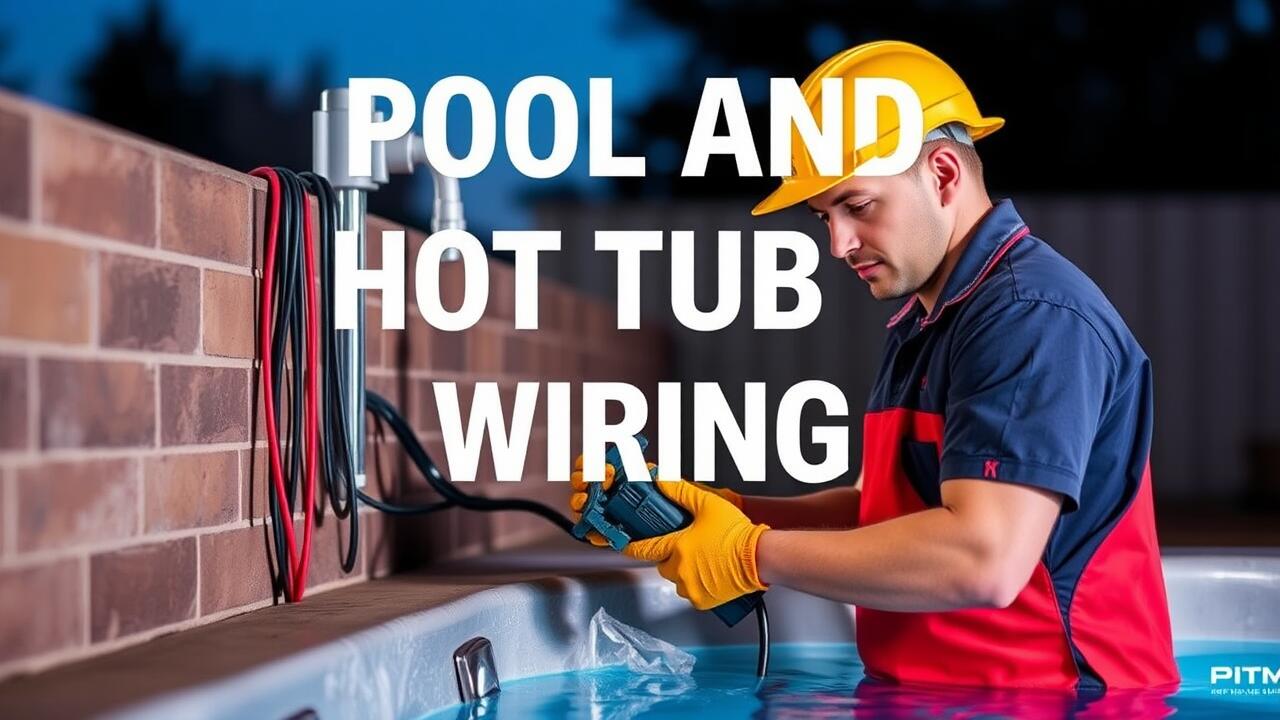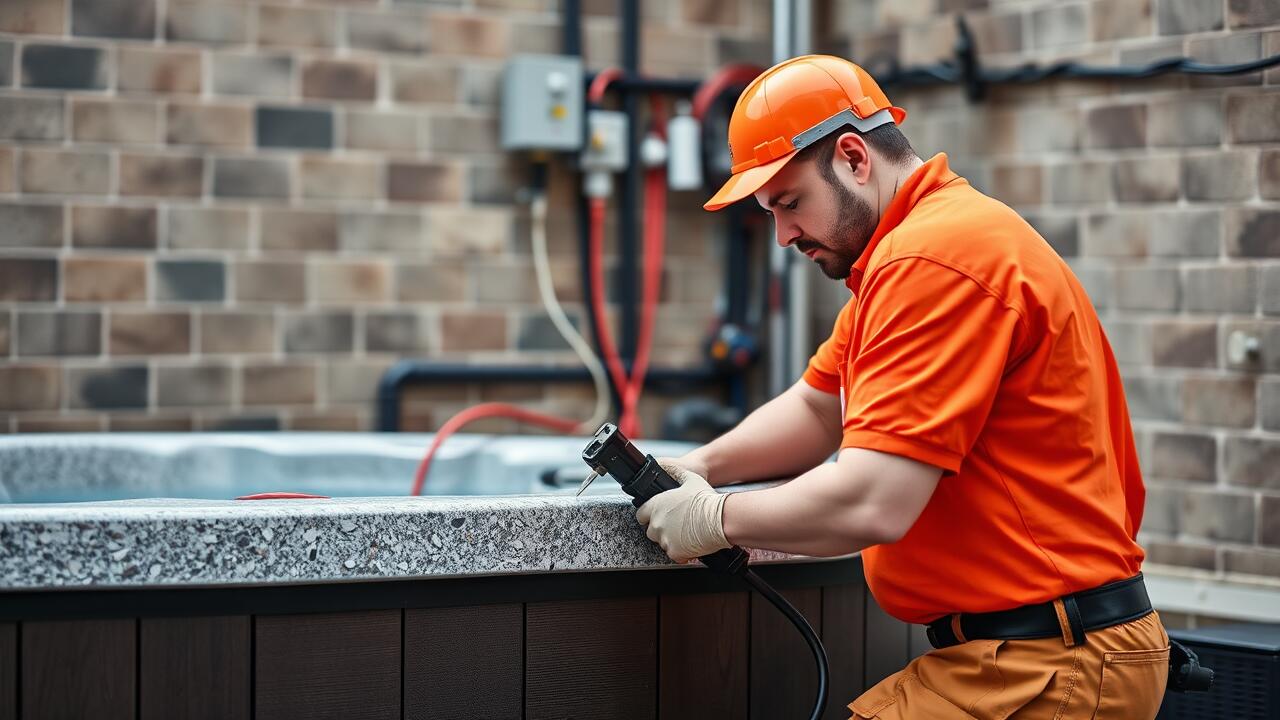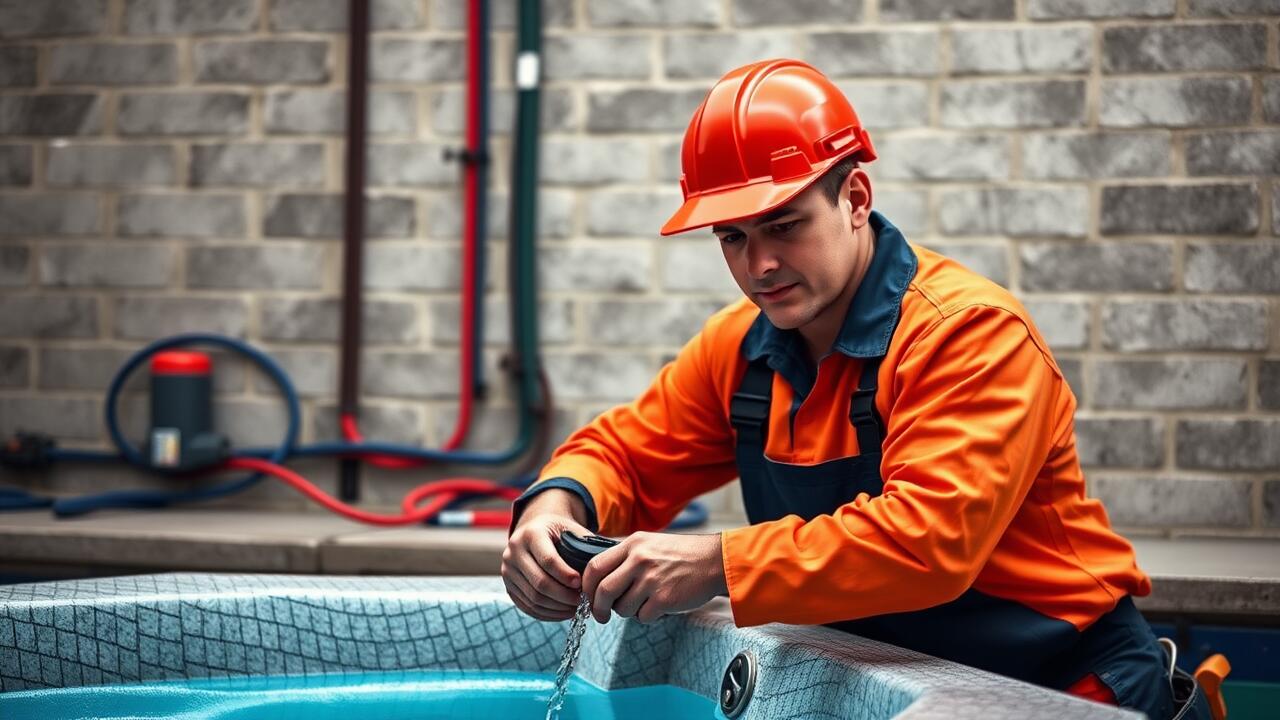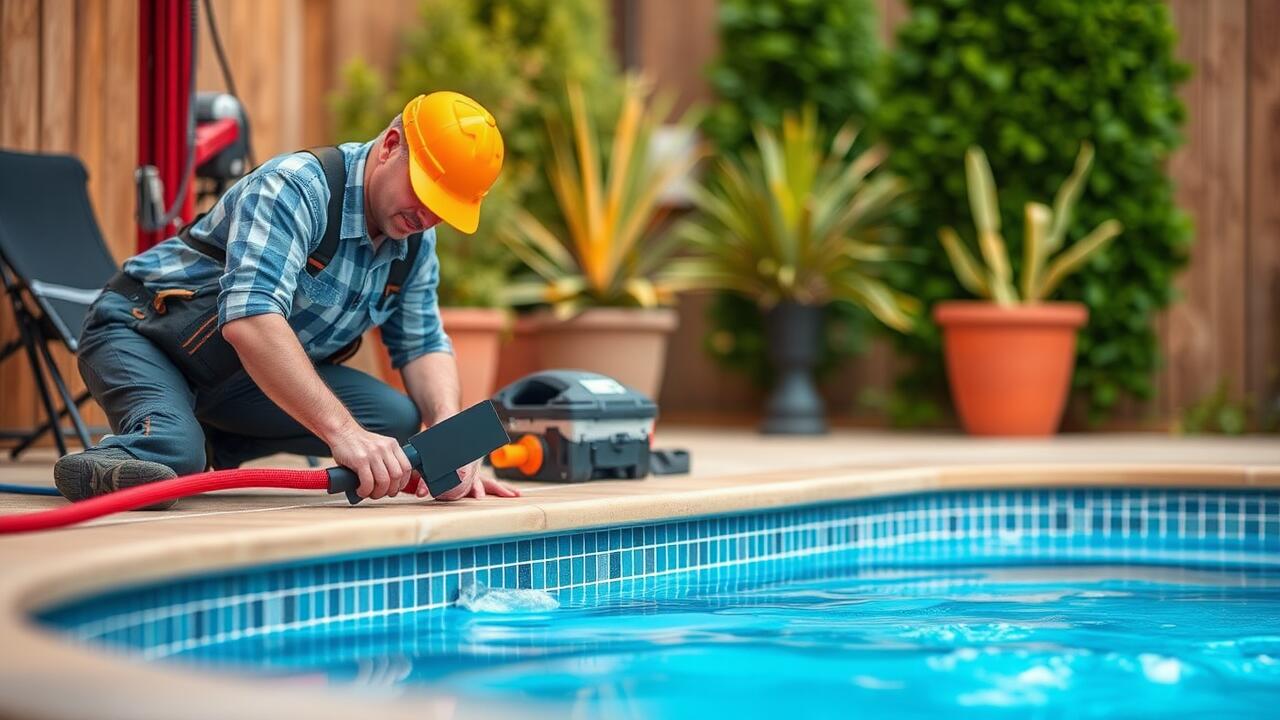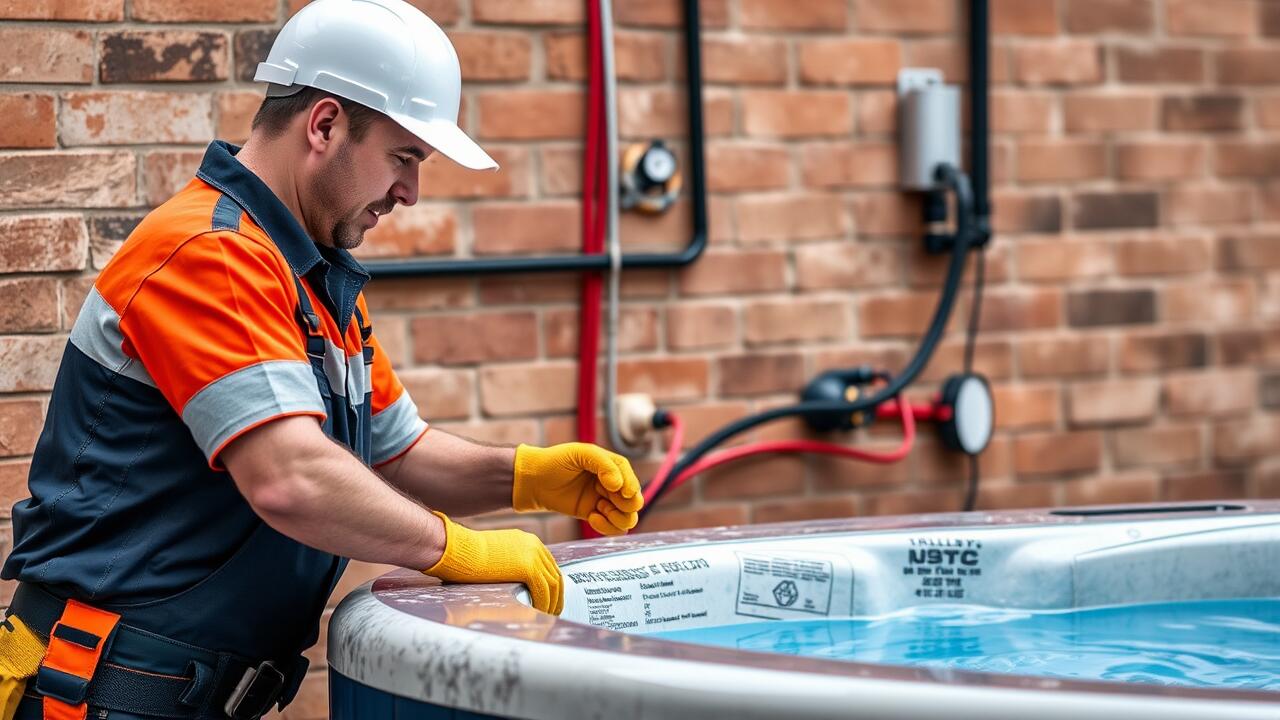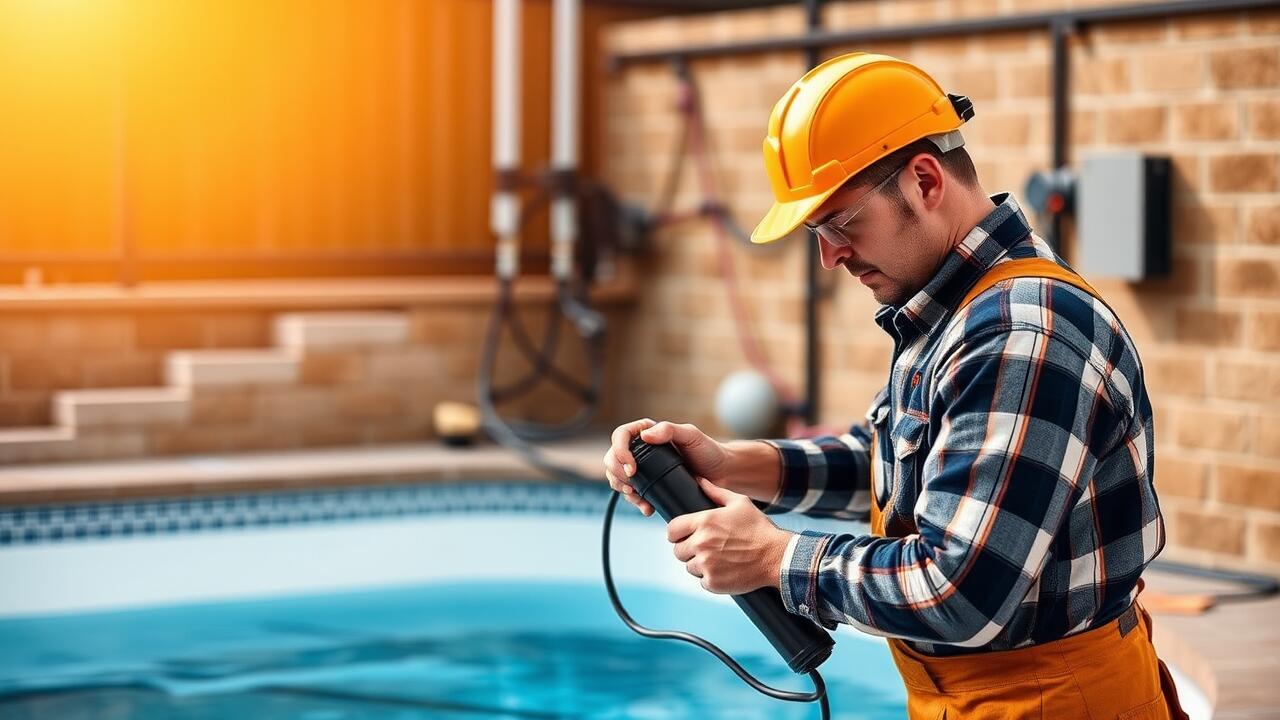
Placement and Protection of Electrical Outlets
Proper placement and protection of electrical outlets is crucial for safety around pools and hot tubs. Outlets must be installed at least six feet away from the water's edge to reduce the risk of electrical shock. In addition to the distance from water, all outlets should be equipped with ground fault circuit interrupters (GFCIs). These devices offer an essential layer of protection by cutting off electricity when a ground fault occurs, significantly decreasing the risk of accidents.
Many homeowners are unaware of the specific codes that govern the installation of electrical outlets near water. Local regulations often dictate not just the distance but also the type of installation required. Checking for "Pool and Hot Tub Wiring near me" can help individuals find qualified electricians who understand these regulations. Ensuring compliance with these standards not only promotes safety but also protects homeowners from potential fines or insurance issues related to improper installation practices.
Best Practices for Outlet Installation Near Water
When installing electrical outlets near pools or hot tubs, it's crucial to choose the right type and placement to ensure user safety. All outlets within a designated distance from the water must be GFCI (Ground Fault Circuit Interrupter) protected. This provides an essential layer of safety by cutting power in the event of a ground fault, reducing the risk of electrical shock. Additionally, the placement of these outlets should be above the water line and at least a few feet away from the edge of the pool or hot tub to avoid contact with water splashes.
It's beneficial to consult a qualified electrician for the installation process. They can ensure all local codes and regulations are met. Homeowners should consider searching for "Pool and Hot Tub Wiring near me" to find professionals experienced in this specific area. Proper placement and protection of electrical outlets not only enhance safety but also contribute to the overall functionality of the pool or hot tub area. Regular inspections and maintenance of these installations are advisable to mitigate any potential issues over time.
Adhering to Bonding Requirements
Bonding is a critical aspect of electrical safety, especially in pool and hot tub installations. This process ensures that all metallic components associated with the pool structure, including ladders, handrails, and lighting fixtures, are electrically connected to prevent electric shock. It creates a low-resistance path for any fault current, minimizing the risk of injuries. Understanding bonding requirements is essential for both compliance with local codes and overall pool safety.
Many homeowners search for "Pool and Hot Tub Wiring near me" to find qualified electricians who can ensure proper bonding practices are followed. Hiring professionals familiar with the latest safety standards helps guarantee that bonding is effectively implemented. Neglecting these requirements can lead to dangerous situations, so it is crucial to prioritize proper bonding in any pool or hot tub setup.
Understanding Bonding in Pool Safety
Bonding plays a critical role in ensuring safety around pools and hot tubs. It involves connecting various metal components, such as ladders, railings, and pool frames, to a common electrical ground. This process helps to prevent electrical shock in the event of a fault by equalizing the voltage between these components and reducing the risk of stray currents in water. Without proper bonding, a person entering the water may become a pathway for electric shock, highlighting the necessity of following established electrical codes.
When considering "Pool and Hot Tub Wiring near me," it is essential to consult with a licensed electrician who understands local bonding requirements. Compliance with bonding standards not only protects individuals utilizing the pool but also assures the overall integrity of the electrical system. An electrician will assess all conductive materials in and around the pool area to ensure they are properly bonded. Relevant regulations may vary by location, emphasizing the importance of working with professionals familiar with local codes.
Compliance with Local Wiring Regulations
Compliance with local wiring regulations is critical for ensuring safety and functionality in pool installations. Each region has specific codes that must be adhered to, often dictated by the National Electrical Code (NEC) but tailored to local conditions. Understanding these regulations can help prevent hazardous situations that could arise from improper installations. Homeowners should familiarize themselves with the requirements or consult with a licensed electrician to ensure their project meets all necessary guidelines.
Obtaining proper permits is also an essential step in the installation process. Permits help ensure that the work is inspected and approved by local authorities, which adds a layer of safety and compliance. When seeking assistance, using resources like "Pool and Hot Tub Wiring near me" can connect homeowners with qualified professionals who are knowledgeable about local regulations. Engaging with these experts can not only streamline the installation process but also help mitigate future electrical issues.
The Importance of Permits in Pool Electrical Work
Obtaining the necessary permits for pool electrical work is crucial for ensuring safety and compliance with local codes. These permits serve as a formal acknowledgment from local authorities that the proposed electrical installations meet specific standards. Ignoring this requirement can lead to improper wiring, creating hazards that could lead to accidents or costly repairs. Homeowners may also face fines or have to remove the installation altogether if it is deemed non-compliant during inspections.
When looking for “Pool and Hot Tub Wiring near me,” it is essential to engage licensed professionals who understand the permitting process. Experienced electricians will handle the paperwork, ensuring all installations comply with local regulations. This not only provides peace of mind but also protects the homeowner's investment in their pool and electrical systems. Ensuring that all electrical work is properly permitted is a step that should never be overlooked for both safety and legal reasons.
FAQS
What are common electrical code violations in pool wiring?
Common violations include improper placement of electrical outlets, inadequate bonding of metal components, failure to comply with local wiring regulations, and not obtaining necessary permits for electrical work.
Why is proper placement of electrical outlets near pools important?
Proper placement is crucial to ensure safety and prevent electrical shock hazards, as water can conduct electricity. Outlets should be installed at a safe distance and protected by ground fault circuit interrupters (GFCIs).
What are bonding requirements for pool wiring?
Bonding requirements involve connecting all metallic components of the pool, including ladders, rails, and the pool structure itself, to a common ground to prevent electrical shock and ensure user safety.
How can I ensure compliance with local wiring regulations for pool electrical work?
To ensure compliance, it’s essential to familiarize yourself with local electrical codes, consult with a licensed electrician, and always obtain the necessary permits before starting any electrical work around a pool.
What are the consequences of violating electrical codes in pool wiring?
Violating electrical codes can lead to serious safety hazards, including electrocution, damage to equipment, potential fines, and increased liability in case of accidents, making it vital to adhere to all regulations.
